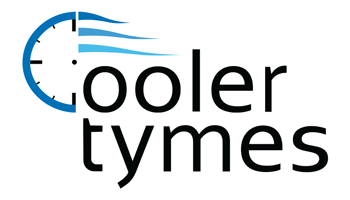
Did you perform a double take when you checked your last energy bill? While high energy bills can be the consequence of severe weather conditions, repeatedly high bills can often signify an inefficient HVAC system or your home is using too much energy by other means, such as drafty windows or insufficient insulation.
An easy way to figure out whether your home is using too much energy is by hiring a home service specialist to carry out a home energy audit, also called a home energy assessment. Keep reading to learn more about home energy audits, including what they are and their key elements.
What Is a Home Energy Audit?
An energy audit is a comprehensive inspection of how much energy your home consumes and whether – and where – your home might be losing or wasting energy. An inspector will take a look at past energy bills during an energy audit to find out where energy is being wasted and how much.
The ultimate goal of an energy audit is to help homeowners save money on their energy bills by suggesting energy-efficient updates, which may include swapping out your current HVAC system, installing new insulation, closing up leaks, or replacing loose windows.
During the energy assessment, the auditor carries out an inspection of the outside and inside of your home. The auditor performs a blower door test on doorways, windows and fireplaces to figure out if there are air leaks in your home. They’ll also evaluate your home’s HVAC system, as well as the ductwork, the water heater, and the insulation in your attic. Some assessments may also include checking your current lighting system.
Benefits of a Home Energy Audit
It can be tough for the ordinary homeowner to know for sure how efficient their home is in comparison to other similar homes in their community. However, lots of energy companies often provide information about where your home stands in comparison to similar homes and whether it’s more efficient, about average, or inefficient in contrast with your neighbors’ homes. This could be a good starting point to determine if you need an energy audit scheduled.
Some of the benefits of a home energy audit include:
Understanding How Efficient Your Home Is
It’s beneficial to know how efficient your home is and where you’re using up the most energy. For example, if your ducts are leaking, it can lead to a significant increase in your energy bills and increased wear and tear on your HVAC system because it has to work longer to fully heat or cool your home.
Making Energy-Efficient Updates
An energy audit will outline where you need to make energy-efficient improvements to conserve energy and decrease utility bills. This might include replacing worn weatherstripping or buying a new energy-efficient furnace.
Improving Health and Safety
Allowing air to seep into your home through doors and windows, or because of a lack of insulation can cause extra moisture to appear, which could negatively affect your home’s humidity levels or produce mold. This can exacerbate health problems, particularly for people dealing with asthma or allergies.
Adding to Your Home’s Retail Value
Energy-efficient homes are sought after by homebuyers. You can sell your home sooner or for more money by demonstrating to potential buyers that it’s energy efficient.
How to Do an Energy Audit of Your Home
Although completing an energy audit independently will not be as thorough as hiring a professional, it’ll offer you a broad sense of how energy efficient your home is. If you don’t find any problems during the DIY test, then you probably don’t need to call in a professional. Try this step-by-step checklist:
- Examine your HVAC system. Damaged ducts can lose up to 20% of conditioned air, leading to steeper energy bills and increased wear and tear on HVAC equipment. If you notice leaks, use duct tape to close them. If your HVAC equipment is old and inefficient, upgrading to a new system can save you a significant amount on your energy bills. In some cases, it can be better to call a reputable HVAC company to inspect your system.
- Watch for signs of air leaks. Air leaks on average can increase monthly energy bills by 10 to 20%. Inside, look for air leaks in areas where there is a draft, like along the edge of flooring and along baseboards and electrical outlets. Outside, you can look for air leaks in the home’s foundation, siding and mortar. Plug, caulk or seal any air leaks to save money.
- Examine insulation. If your home is older, it could mean your insulation is too. If you can see the joists, you likely need more insulation.
- Check ventilation. Check that all of your kitchen and bathroom exhaust fans are working properly, and check for evidence of rot or moisture.
Contact Cooler Tymes LLC for a Professional Energy Audit
If you are interested in professional help figuring out how energy efficient your heating and cooling equipment is, contact the HVAC professionals at Cooler Tymes LLC today. We’ve proudly served the residents of Litchfield Park with quality home services for years. Contact us today to request an appointment.
